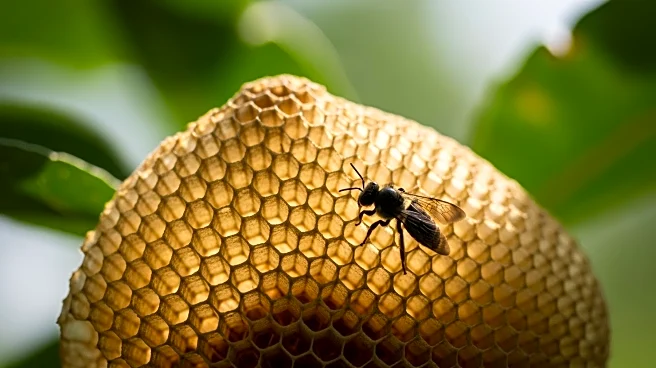What's Happening?
A study conducted on the solitary alfalfa leafcutter bee, Megachile rotundata, has found that prepupal diapause significantly reduces adult lifespan. The research involved bees collected from a commercial
alfalfa farm in Idaho, with some bees undergoing diapause and others developing directly. Diapause bees were larger on average than non-diapause bees, but they exhibited reduced lifespans. The study also examined oxidative stress and immune responses, finding that diapause bees showed higher levels of oxidative stress markers, which may contribute to their shorter lifespans.
Why It's Important?
This research is important as it provides insights into the biological impacts of diapause, a common survival strategy among insects. Understanding how diapause affects lifespan and health can inform agricultural practices, particularly in pollination services where leafcutter bees are used. The findings suggest that while diapause may offer advantages in terms of size, it could have detrimental effects on longevity and health, potentially affecting pollination efficiency and the sustainability of bee populations used in agriculture.
What's Next?
Further research is needed to explore the mechanisms behind the reduced lifespan associated with diapause and to identify strategies to mitigate its negative effects. This could involve studying genetic factors, environmental conditions, and nutritional interventions that may enhance the health and longevity of diapause bees. The findings may also prompt discussions on optimizing bee management practices in agriculture to ensure effective pollination while maintaining bee health.
Beyond the Headlines
The study raises broader questions about the evolutionary trade-offs associated with diapause and its role in insect survival. It highlights the complexity of insect life cycles and the need for a deeper understanding of how environmental factors and biological processes interact. The implications extend to conservation efforts, as understanding diapause can aid in the preservation of bee species and their habitats, which are crucial for biodiversity and ecosystem health.









